N. Ram was Editor-in-Chief of The Hindu during 2003-2012. He was also the Chairman of The Hindu Publishing Group. Mr. Ram was in Pune for delivering the first Dr. Narendra Dabholkar Memorial Lecture on 20th August 2019 and spoke to Sankalp Gurjar at length about The Hindu’s past and present. In this free-wheeling conversation, he sheds light on The Hindu’s editorial philosophy, the role of the newspapers, the potential of print, emerging digital strategies, and a host of other issues such as investigative journalism and the Wikileaks. The interview explains how and why The Hindu remains the best Indian newspaper and offers valuable insights to journalists. This is the third part of a three-part interview where N. Ram talks about the editorial roles and editorial elements of the newspaper.
The Hindu is the only Indian newspaper that has appointed the Reader’s Editor. Why did The Hindu do it?
Yes, we were the first Indian newspaper to do so. We were influenced by The Guardian in this regard. The Guardian appointed its first Readers’ Editor during Alan Rusbridger’s editorship (1995-2015). We had invited Ian Mayes, the Readers’ Editor, along with Rusbridger to come to India and give lectures, and at the end of the Chennai lectures, we announced the institution of our Readers’ Editor. We have closely followed the Guardian model. The basic feature of this model is ‘independence’, independence from the editorial process, i.e., from the editor and the entire editorial team. The Readers' Editor (RE) is entitled to full co-operation from the editor and the editorial team. The RE can demand information. But the RE is sitting in the heart of the office in a completely independent role. The RE does not report to the editor. He oversees corrections and clarifications on a daily basis. We learned from The Guardian that your corrections and clarifications should be published at the same place every day. It builds confidence and trust in the newspaper. The RE also writes a column, once a week. It’s not an easy job to do. But our current RE, A. S. Paneerselvam, has written hundreds of columns. So far, we have had three RE. The first was our highly respected, veteran news editor, K Narayanan. He shaped the role of the RE at The Hindu. Readers felt that he was their man. The second RE was S. Viswanathan and the third is Paneerselvam.
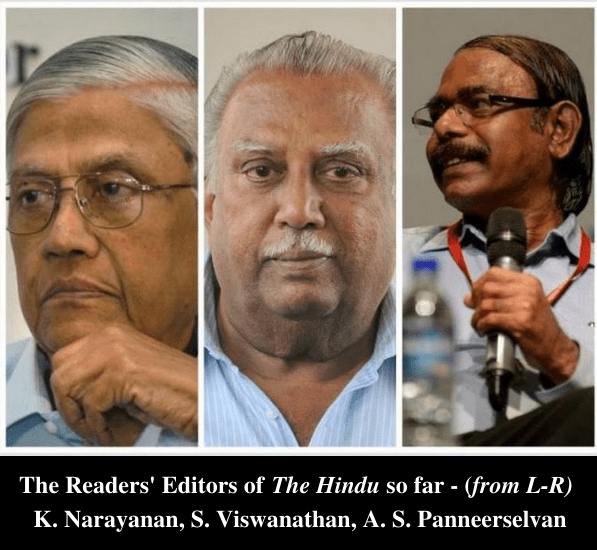 The RE is an independent internal news ombudsman. Earlier, The Times of India appointed an external ombudsman. That doesn’t work. Being an effective RE is a daily, full-time job. Our RE has a separate office and an assistant. It’s a very demanding job. Ian Mayes told us that it’s a very stressful job. You come under a lot of pressure because the RE is supposed to answer readers’ calls and emails. In the time of social media, the job has become even more stressful. The RE can’t just follow readers’ views, sentiments, and tastes; neither is he an agent of the editorial wing of the newspaper. The RE has got to use his independence to figure out who is right and wrong. Seeing our example, one or two Hindi language newspapers came to us saying that they wanted to follow suit. But I think they abandoned the experiment for whatever reason. It’s commendable that The Wire and Scroll have appointed their news ombudsmen, with their specific terms of reference, but I don’t think they have a full-time role like ours. Maybe, their needs are different and the independent roles envisaged fit the bill.
The RE is an independent internal news ombudsman. Earlier, The Times of India appointed an external ombudsman. That doesn’t work. Being an effective RE is a daily, full-time job. Our RE has a separate office and an assistant. It’s a very demanding job. Ian Mayes told us that it’s a very stressful job. You come under a lot of pressure because the RE is supposed to answer readers’ calls and emails. In the time of social media, the job has become even more stressful. The RE can’t just follow readers’ views, sentiments, and tastes; neither is he an agent of the editorial wing of the newspaper. The RE has got to use his independence to figure out who is right and wrong. Seeing our example, one or two Hindi language newspapers came to us saying that they wanted to follow suit. But I think they abandoned the experiment for whatever reason. It’s commendable that The Wire and Scroll have appointed their news ombudsmen, with their specific terms of reference, but I don’t think they have a full-time role like ours. Maybe, their needs are different and the independent roles envisaged fit the bill.
But why should a newspaper appoint a Readers' Editor?
It is good for journalism. It is a self-correcting mechanism. It improves your standards. It also builds readers’ trust. Our readers’ response to the work of our REs has been extremely good. International experience has shown that legal risk from publication is reduced if you put in place a credible self-correcting, self-regulatory mechanism like an independent news ombudsman. Thus, it also makes business sense. This point concerning the reduction of legal risk has not been tested in India yet.
Does the RE affect the newspaper’s coverage?
No, not directly at any rate. The RE doesn’t interfere in the publication of news or in selecting articles. The RE’s job is to perform a post-mortem and provide advice if the editor asks for it. Initially, some of our journalists didn’t like the RE’s constant vigil at the heart of the editorial operations of the newspaper; they liked the daily corrections even less. But gradually, they came to realize the advantages of the office of the independent full-time news ombudsman. One rule that helped, which our first RE had put in place following a discussion with Ian Mayes, was not to reveal names while publishing corrections, unless the journalist or outside contributor had committed an offense like plagiarism. Acknowledging and correcting a mistake, with the newspaper taking the responsibility, and not pointing the finger at an individual journalist who committed the error is, I believe, good journalistic practice. I can assure you that there is no way a newspaper will lose out by appointing an experienced journalist as a full-time internal news ombudsman. There is an international organization called Organization of News Ombudsman (ONO) in which our REs have been members. They meet once a year, exchange experiences, learn from each other. It’s an international network. I have no doubt that being part of this network has served us well.
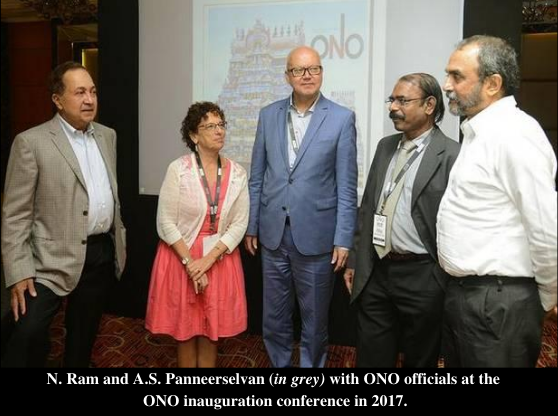 Some families which own newspapers are no more involved in any editorial roles. However, The Hindu group has been an exception to this. How has it managed to do so over the course of successive generations?
Some families which own newspapers are no more involved in any editorial roles. However, The Hindu group has been an exception to this. How has it managed to do so over the course of successive generations?
It has happened. But it’s not like all the editors have come from only one family. There have been talented journalists who have risen to senior or top editorial positions- Siddharth Varadarajan (2012-13), Mukund Padmanabhan (2016-19), and Suresh Nambath (2019 onwards). But these are recent examples.
In the early days, The Hindu did have professional editors like C. Karunakara Menon (1898-1905) who had nothing to do with the ownership of the newspaper. But by and large, in the 20th century, the editors have been from the Kasturi Ranga Iyengar family. However, I must add that even in the 20th century, there were editors like S. Parthasarathy (1959-1965) who were not from the family. Now, as I mentioned, we have editors who are not from the family.
In fact, now if a family member wants to be an editor, there will be resistance. It won’t be good for the newspaper. Some members of the family are working with The Hindu. But they report to the editor and not to anyone else in the family. This will be a challenge in the future. Many family members from the new generation may not be interested in continuing to work with the newspaper. Many are abroad, doing well for themselves. But some of them do want to be involved.
Your daughter worked with The Hindu.
Yes, but she resisted coming in. They first got her involved as London Correspondent of BusinessLine. Later, the role changed because it was becoming expensive to keep two journalists in London. Vidya Ram worked for some years as London correspondent for The Hindu and also our other publications. Several months ago, she took a break from journalism and recently she resigned from the newspaper, for personal reasons. I think she wants to do things other than daily journalism.
As compared to other newspapers, The Hindu has many journalists who have written serious books. What’s the reason behind this?
Yes, several of our journalists have written excellent books on foreign policy, national security, South Asian politics, etc. They are free to write and publish. We encourage them to write. We do try to create an enabling environment. International newspapers have that sort of working culture. Many of our journalists also go on fellowships. Our only condition is they must inform us in writing before sending in their applications. If they do not do this, they would have to choose between accepting the fellowship or scholarship and keeping their job in the newspaper.
UPSC aspirants read The Hindu. Why do you think that happens?
During my travels, I get to talk to a lot of officials and others serving in different capacities, at airports and other places. They come from different States and every region of India. They evidently believe that reading The Hindu, and also Frontline is essential in preparing for their civil service examinations. Recently, I discovered that the e-paper of The Hindu, and also separately our editorials and specialized content from our newspaper on subjects like foreign policy, are made available to hundreds of thousands of young aspirants on the social media app, Telegram. The Hindu doesn’t get any subscription revenue from this and we haven’t done anything actively to stop this. In fact, this unauthorized use of our editorial content is pleasing because it reinforces the claim that The Hindu and Frontline have more informational and educational value than any other Indian newspaper and magazine respectively. We know that these civil service aspirants also read other newspapers, in Hindi, Tamil, Malayalam, Bengali, and so on. But we are Number One in this segment. It also builds a reputation, nationally.
The Hindu used to publish YoungWorld for children.
Yes, we still do. But now it’s not part of the main newspaper; it’s a separately printed publication- a complete newspaper for children that comes out every Friday and needs to be subscribed to. We also have a Young World Club and a lot of wholesome and diversified activities, mostly online, for children.
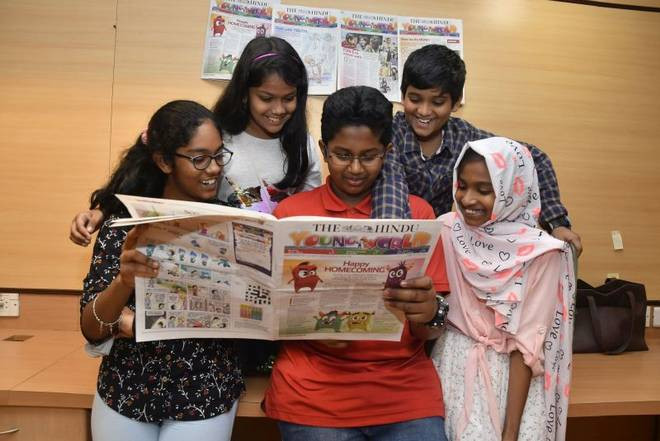
We have The Hindu Crossword, for children under 15, a subscription-based online product. And then we have The Hindu in School, our school edition available through schools. The idea behind this is to introduce the newspaper to school-going children. There is no guarantee that they will read newspapers regularly as they grow. But there is a chance they might, if you introduce them to the habit at a young age with good and interesting content.
You have had a ringside view in editing and managing the Hindu. What do you think are some of the lessons?
I think it’s vital to preserve and protect your independence. You must respect the line between news and opinion. Breaching this line doesn’t go well with your readers. I know that quality international newspapers like The Financial Times also believe in this. Don’t get too close to the government; at the same time engage professionally with those in power as well as in the opposition. Walter Lippmann, the great American journalist, warned against ‘cronyism’. I have been guilty of getting too close, at times, to those making policy decisions, in my days. Don’t think that as journalists you are making policy. If you have any advice for the government, offer it through your columns. But don’t think that a Prime Minister or Chief Minister is your friend. If you do that, your independence is compromised. You have to maintain your distance, both intellectually and emotionally. Also, in this digital age, we have to think about finding ways to survive financially. Journalists of the past could get away without thinking about the business side of running the newspapers. Now, that option is no longer available. But merely chasing numbers is also not good. How to deliver relevant and interesting content without deploying any cheap tricks is a challenge.
Any advice for prospective journalists?
Be bold and fearless in reporting, in investigating, and in expressing your views. Ask questions in your newsroom. Don’t be intimidated by those in authority. Find ways to raise questions. Self-censorship is not good. Expose malpractices, corruption. Develop good writing skills. Read widely. Famous writers like Charles Dickens, R K Narayan, and Gabriel Garcia Marquez remained journalists throughout their lives. In fact, Marquez wanted to be remembered, first and foremost, for his journalism.
Young journalists should have a conception of what is journalism and why they are doing it. They should not be in journalism merely for making money. Come to the Asian College of Journalism at Chennai. (The ACJ was set up, and is administered by the Media Development Foundation, a not-for-profit public trust, of which Sashi Kumar is the Chairman and I am a Trustee. The ACJ has support from a wide range of Indian media organizations.) We think, it is the best journalism school in South Asia. In my days, there was no need to go to journalism school. However, I went to the Graduate School of Journalism at Columbia University, New York, in 1967-68. Today, the need for journalism education and training stands out. But this I would suggest: don’t go for a Bachelor’s degree course in journalism because that won’t give you a good enough intellectual grounding for your intended career. Go for a solid academic discipline like history, economics, politics, sociology, literature, science, engineering, etc. before doing a good post-graduate course in journalism.
Part 1 and Part 2 of the interview can be read here and here, respectively.
(Kartavya is celebrating its first anniversary on 9th August. On the backdrop of this special occasion, we will publish comprehensive interviews of three renowned editors of English journalism for seven consecutive days starting today, that is, August 9th to August 15th.
N. Ram's interview will be published in three parts and will shed light on the past and present of The Hindu. Naresh Fernandes' interview will be published in two parts and will talk about Scroll.in. And lastly, Shekhar Gupta's interview will be published in three parts which will address his career with The Indian Express, India Today, and The Print Although these editors belong to three different generations and have a differing point of view on some issues, their commitment to the core values of journalism is alike.
The Marathi translation of this interview has been published in the 15th August 2020 edition of weekly Sadhana.)
Tags: the hindu interview N Ram politics journalism ombudsmen readers' editor sankalp gurjar Load More Tags

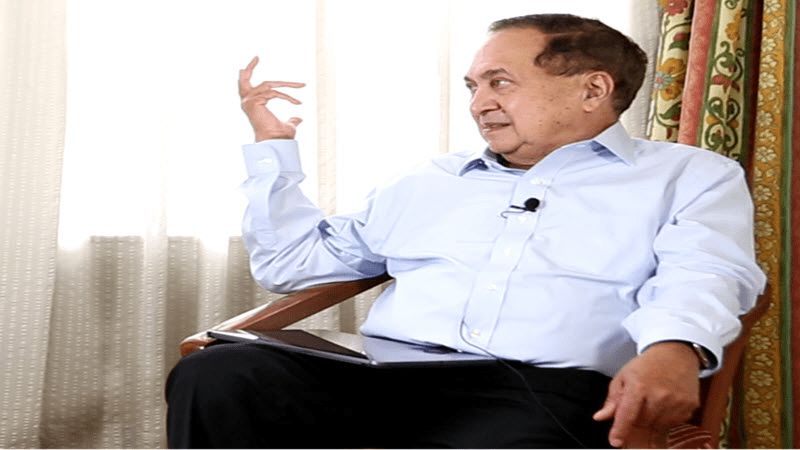

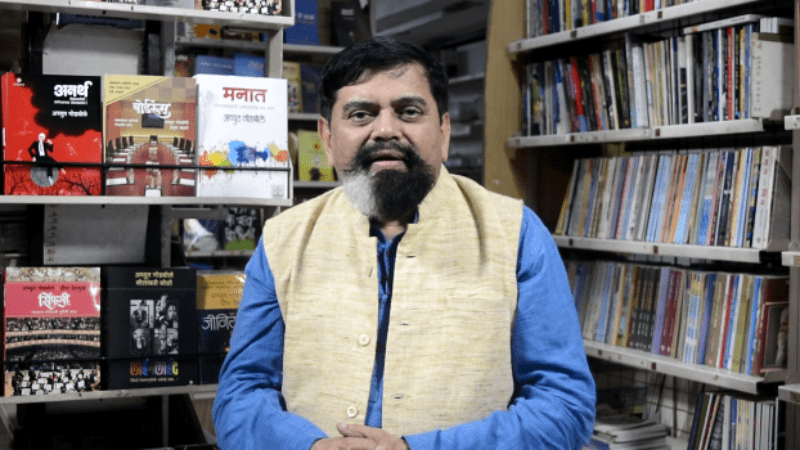
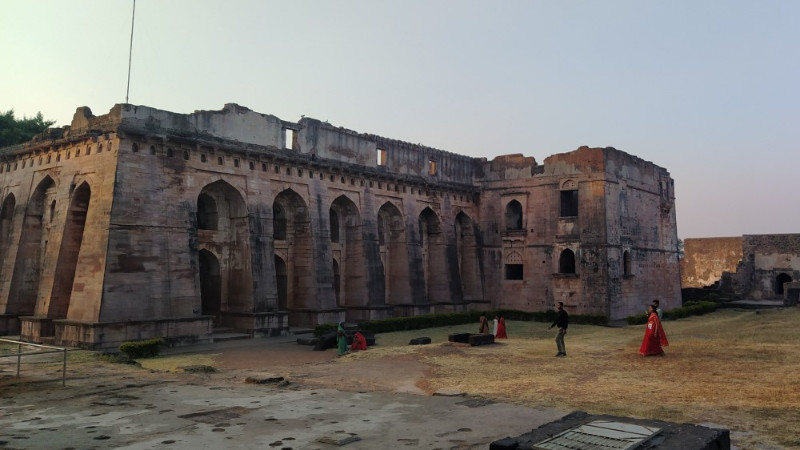
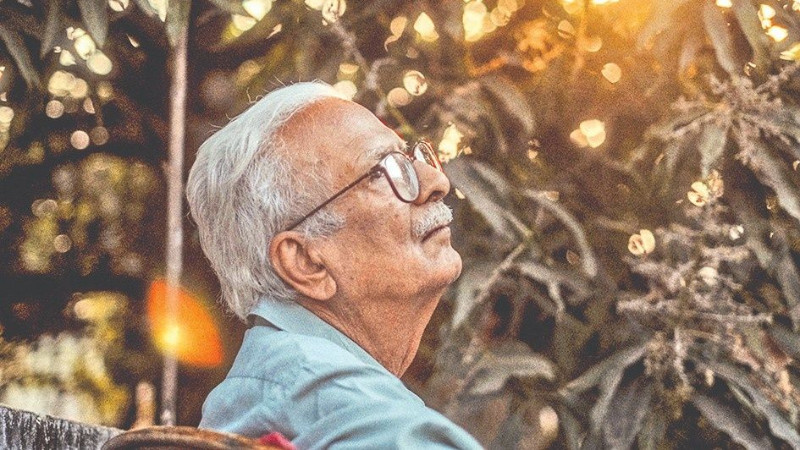
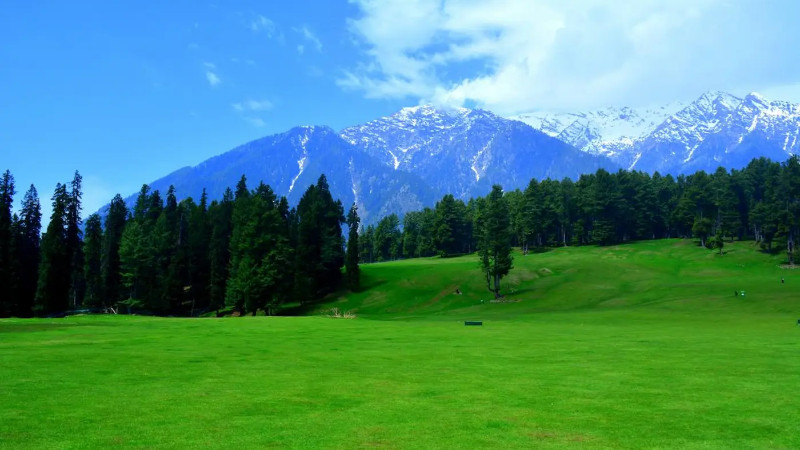
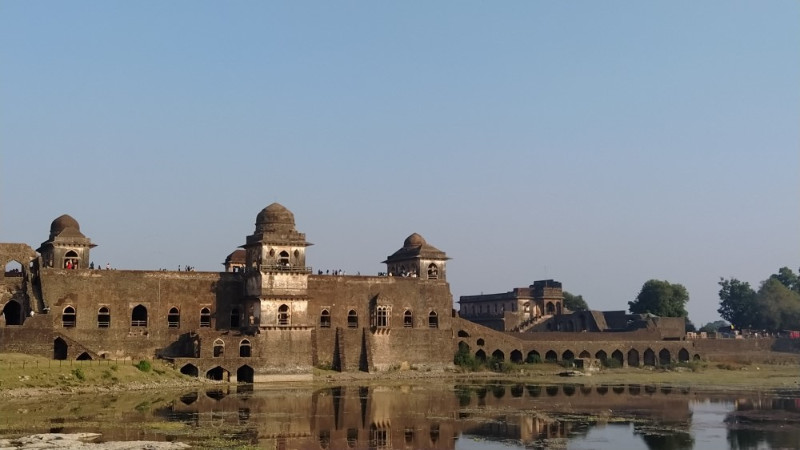
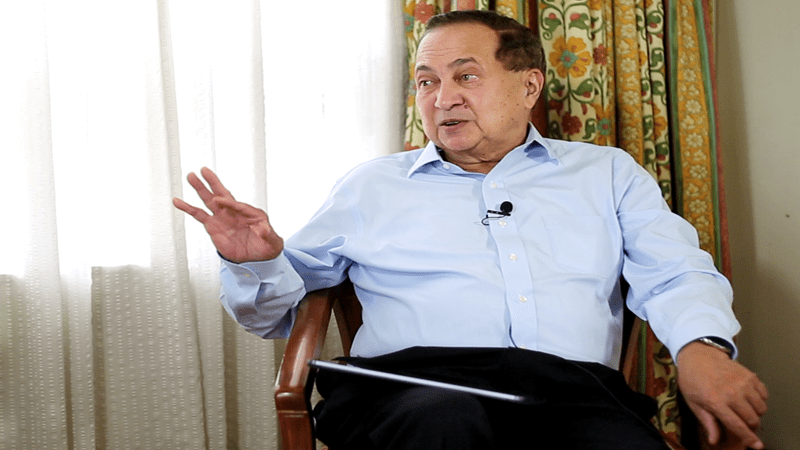
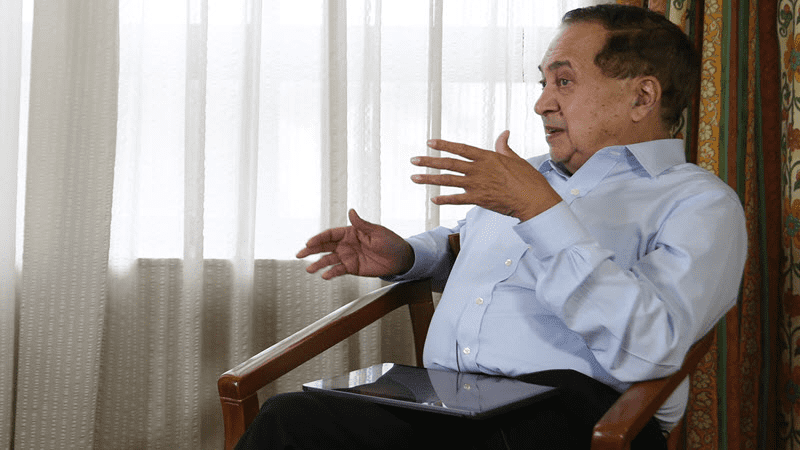
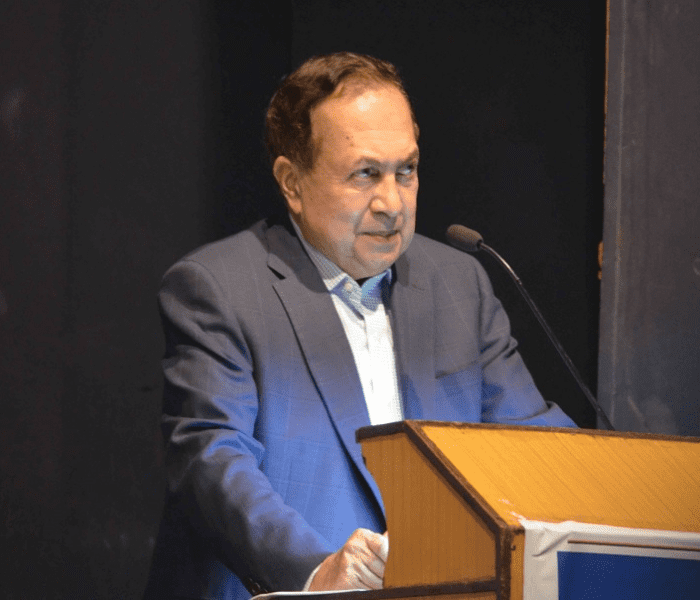
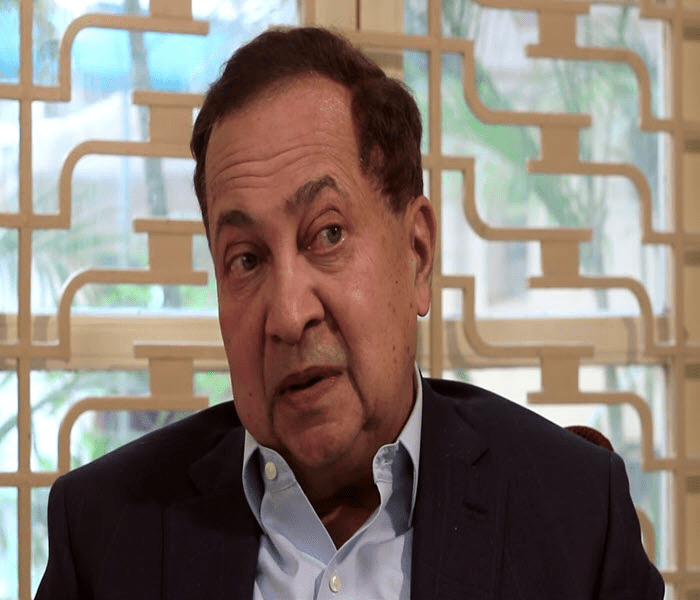
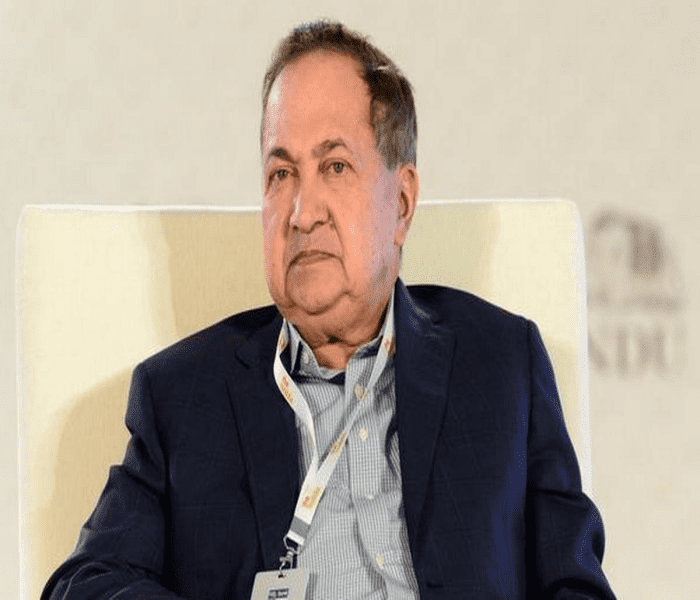

























Add Comment